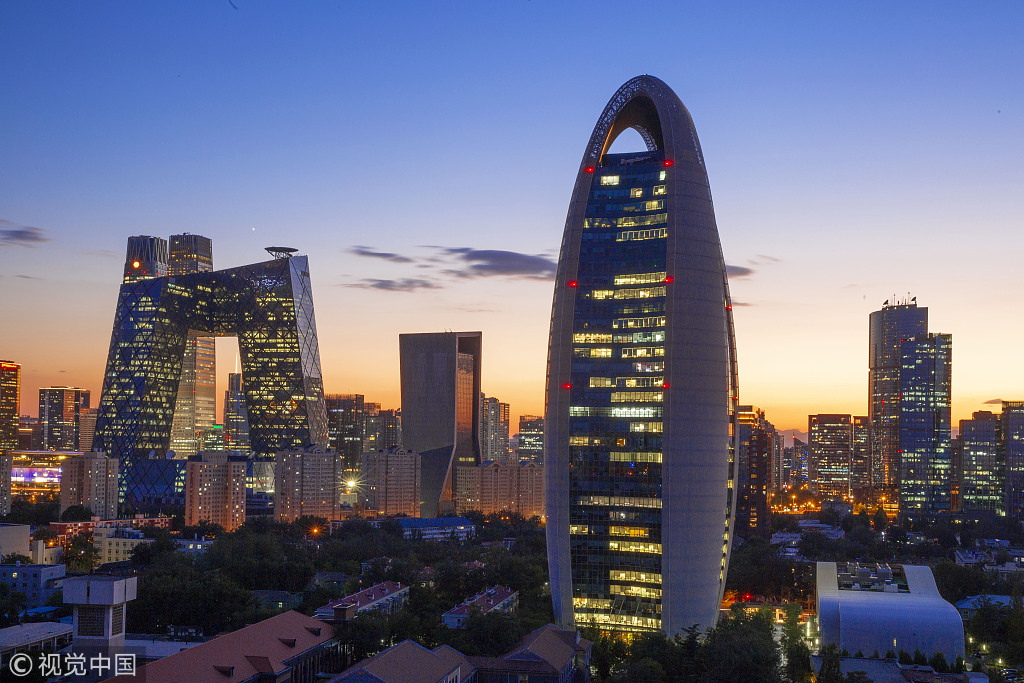Chinese opening-up in tune with globalization


The world has just joined with China in celebrating 40 years of its opening-up. There is a very good reason for this. With hindsight it is possible to see that it was China's opening-up that gave the kick-start to Western globalization.
The preparations for, and the follow-up to the epoch-making announcements of the Third Plenary Session of the 11th Communist Party of China Central Committee, could be used as a case study for globalization. Prior to the meeting, Deng Xiaoping visited Japan and Singapore. Immediately after the resumption of normal relations with the United States, on Jan 29, 1979, he was entertained by then US president Jimmy Carter in the White House.
The image of Deng wearing an enormous Stetson hat on a visit to Texas on Feb 2 was viewed worldwide and has provided a lasting metaphor for the rise of China to become a global giant. Already the two biggest global corporations of the time could see the vast potential of the new market. General Motors had sent a delegation to discuss joint ventures. On the day after normalization of relations with the US, Coca-Cola was given permission to open bottling plants in China.
It was around four years later, in 1983, that globalization, as the expansion of global markets, became the hot topic and driver for the strategies of Western multinational corporations. Opening-up has never been either the victim or the child of Western globalization. It has always been based on socialism with Chinese characteristics, on ongoing reform of every sector of society, and on win-win relations with other countries.
In that more general sense, China has steadily aimed to work with the grain of globalization but never let it deflect from the paths of national rejuvenation, prosperity and helping to create a harmonious international order.
This is a timely message for the rest of the world, as there is a growing sense that globalization is slowing or even on the brink of being reversed. There have been, among other things, sharp drops in the last decade in foreign direct investment and in crossborder bank loans.
On the other hand, international air travel has increased throughout the same period, as has the volume of parcels sent abroad. So the evidence does not all point in the same direction, even for this short period.
In Western eyes, global economic integration has progressed enormously since World War II, with a big jump in the 1980s and '90s. But what became known as globalization could be seen as the resumed expansion of global trade that took place before 1914 that the two world wars interrupted.
Technologies can be nationalized; nations can go global. Individuals may travel far afield and return to their homeland. Think of all those Chinese people who have studied, worked and lived in other countries and returned to help build a better future for their fellow citizens. Opening-up has meant going out, too, and the relations established with other people are reciprocated.
President Xi Jinping has been a consistent supporter of economic globalization. His speeches indicate his regard for it not so much as a national strategy but as a condition of the global economy from which wise national policy can draw benefits.
Any one national society will be differently placed in being exposed to the risks and in taking advantage of globalization. In this respect, China wisely assesses its own experience and assets in relation to the global market and is making a unique contribution to the global economy with its Belt and Road Initiative.
Nothing illustrates better that globalization is not a one-size-fits-all process than the BRI.
The consequence for each of the 65 countries that welcomes the BRI is that they will appreciate how their own material and cultural resources can make a unique contribution to creating the wider system of linkages that benefits them all.
The vision of cooperation, shared understanding of the BRI's goals and appreciation of its benefits is what inspired more than 130 countries that attended the Belt and Road International Forum in May 2017. As such, the BRI is a model for a pragmatic approach to reform that can be applied to many of the problems that arise from globalization.
The author, a sociologist based in London, is author of China's Role in a Shared Human Future: Towards Theory for Global Leadership. The views do not necessarily reflect those of China Daily.
- Road accident in East China kills 4
- Health Bureau: Free Chinese medicine services for Tai Po fire victims
- Satellite launch marks a new milestone in UAE-China cooperation
- HK fire: 4,510 residents in shelters as support fund reaches HK$3.6b
- Scholars, industry insiders call for a responsible, scientific, credible think tank research system
- Remains of former Chinese leader Wang Bingqian cremated





































